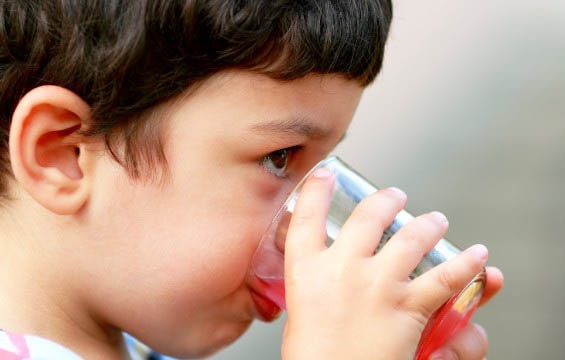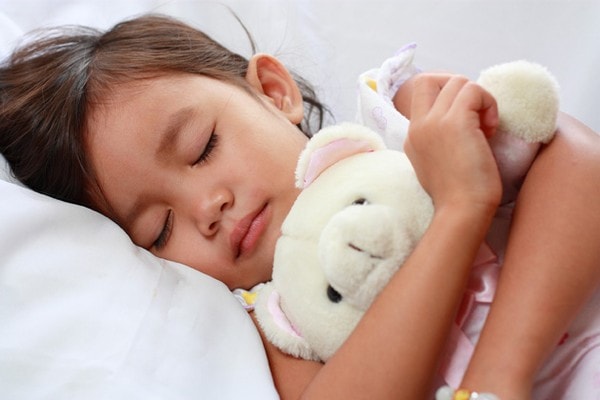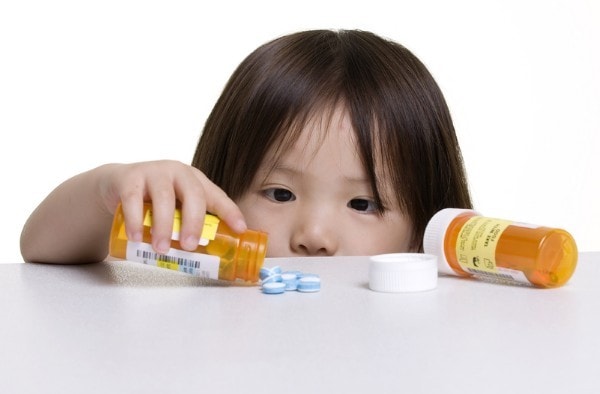11 things parents need to do to protect their children from the measles epidemic
Below are things smart mothers need to do to protect their children's health during erratic weather and epidemics.
1. Keep your house clean
Cleaning and sanitizing the house is something that almost every mother does every day when she has small children. However, during the epidemic season, it is necessary to pay more attention and take this even more seriously. Sweep and mop the floor with disinfectant cleaner at least once a day, scrub the family bathroom, thoroughly clean objects that children often touch such as: toys, doorknobs, bed frames, etc., change blankets, sheets, curtains, and clean pillowcases at least once a week (if dirty, change immediately).
 |
2. Clean personal hygiene
Wash hands with soap before and after eating; bathe and wash hair daily; change into clean clothes at least once a day; wipe body, feet, and hands before going to bed; clean teeth with salt water or toothpaste... are the minimum things that must be done for your child to ensure that he or she always has good personal hygiene.
Not only children, but the above also applies to parents because you are likely to be the intermediary agent transmitting the disease to your child due to contact with many people in the outside environment. In addition, you should wash your hands with soap or hand sanitizer and change clothes before hugging or contacting your child when you have just come home from outside. If you suspect that you have been in contact with someone who has a child or a sick relative during the day, it is best to clean yourself and wash that day's clothes separately (to be careful, boiling clothes in boiling water is the safest) before coming into contact with others, especially young children.
3. Give your child enough water
Drinking enough water (boiled and cooled water) is considered one of the simplest, most effective, safe and cheapest ways to prevent disease. Because water promotes metabolism, and also helps eliminate toxins from the body.
You can give your child orange juice, lemon juice, grapefruit juice or fruit juice containing lots of vitamin A and vitamin D to supplement minerals and increase resistance.
 |
4. Have a reasonable diet for your child
Eating lots of fresh vegetables, fruits and foods rich in zinc is a reasonable diet for children during the epidemic season because this is a menu that supports the child's immune system. In addition, you should also supplement your child with yogurt, fresh milk, eggs, etc. every day.
In addition, babies who are breastfeeding, whether they are old enough to eat solid foods or not, still need to maintain a stable daily breastfeeding routine to ensure nutrition and receive natural antibodies from their mother.
5. Avoid getting close to the epidemic area
Unless absolutely necessary, avoid areas with outbreaks or hospitals and medical centers with large numbers of patients. When going out, you and your child should wear a mask at all times.
Be careful not to visit sick people or people with sick children to avoid becoming an intermediary agent transmitting the disease to your baby. You can call to ask and explain the reason so that relatives and friends can sympathize.
6. Make sure your child gets enough sleep
Lack of sleep makes children more susceptible to fatigue and illness due to a reduction in natural killer cells that attack bacteria. Children should be put to sleep in a quiet, clean, airy environment to ensure both quality and quantity of sleep.
Let your baby sleep according to his own needs, but you should also know the standard sleep time according to each child's age as follows: newborns need to sleep 18 hours/day, 1-2 year olds need 12-13 hours/day, older children need to sleep less but need to ensure at least 8-9 hours/day.
 |
7. Maintain your child's daily physical activity time
Playing, playing with toys and daily physical activities are necessary activities for children to develop their thinking and physical strength. Therefore, even though it is the epidemic season, you should not ban children from playing and "lock" them in the house completely. Instead, organize "home" physical activities in the room or yard, garden (if available). You can take your children to public spaces such as flower gardens, parks with open spaces and not too many people passing by.
8. Do not take your child to crowded places
Markets, supermarkets, shopping malls, train stations, bus stations, entertainment areas and public places with many people are places where germs can easily be harmful to children. In addition, if possible, it is best to let your children stay home from school until the epidemic is over.
9. Do not give your child medicine without permission.
Many types of medicine, especially antibiotics and anti-allergy drugs, should not be given to children arbitrarily, even according to the doctor's old prescription. Because each disease at each time, different age stages require separate dosages.
Some experienced mothers believe that it is okay to give their children vitamin A and vitamin D during an epidemic to increase their resistance. That is not wrong, but I think it is best to consult a doctor.
 |
10. Grasp disease information
It may sound unrelated but this is no less important. You need to know some basic information such as: symptoms of the disease, prevention and treatment, vaccination, age group, areas with outbreaks, the development of the epidemic...
Regarding the symptoms of the disease, right after giving birth, I bought a notebook to record the signs of some common childhood diseases such as measles, whooping cough, flu, hand, foot and mouth disease... to occasionally take it out to read to remember and when needed, compare it with reality.
11. Observe your child for unusual behavior.
Normally, mothers pay attention to their children 1, but during the epidemic season, the level must increase to 10. With every strange symptom of the child, no matter how small, such as rash, increased body temperature, loss of appetite, irritability... mothers also need to be highly "vigilant". For example, during this measles epidemic, I had to stay up almost all night to continuously measure my child's temperature when Jip's forehead was a bit hotter than usual in the early evening. In times of unpredictable epidemic complications like this, being a little careful is not too much.
According to Health and Life


